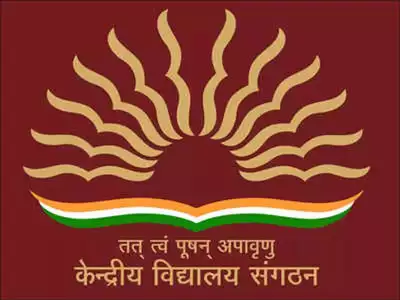Kendriya Vidyalaya Sangathan Revises Recruitment Rules for Teaching and Non-Teaching Posts in 2025

New Delhi, March 22, 2025 – The Kendriya Vidyalaya Sangathan (KVS), an autonomous body under the Ministry of Education, Government of India, has introduced significant revisions to its recruitment rules for teaching and non-teaching positions, effective as of March 2025. Announced earlier this week on the official KVS website (kvsangathan.nic.in), these changes aim to streamline the hiring process, align it with contemporary educational needs, and ensure a more robust selection of candidates for its network of 1,256 schools across India and three abroad. The revised rules come ahead of an anticipated recruitment drive expected to be advertised in the coming months, though the exact number of vacancies remains undisclosed.
Key Changes in Recruitment Rules
The updated recruitment framework introduces several modifications to eligibility criteria, selection processes, and post classifications, reflecting the evolving demands of the education sector and the National Education Policy (NEP) 2020. Below are the major highlights:
- Revised Eligibility for Teaching Posts
- Primary Teachers (PRT): Candidates must now possess a Bachelor’s degree with at least 50% marks and a two-year Diploma in Elementary Education (D.El.Ed) or a Bachelor of Education (B.Ed). Additionally, passing the Central Teacher Eligibility Test (CTET) Paper-I is mandatory, with a new emphasis on proficiency in digital teaching tools.
- Trained Graduate Teachers (TGT): The eligibility now includes a four-year integrated degree course from a Regional College of Education (NCERT) or a Bachelor’s degree with 50% marks in the concerned subjects, alongside a B.Ed and CTET Paper-II clearance. Specialization in emerging fields like Artificial Intelligence (AI) and Environmental Science has been added as a desirable qualification.
- Post Graduate Teachers (PGT): A Master’s degree with 50% marks and a B.Ed remain essential, but the revised rules prioritize candidates with experience in research or innovative pedagogy, aligning with NEP’s focus on critical thinking and creativity.
- Inclusion of Special Educators
A notable addition is the formal inclusion of Special Educator posts in the recruitment framework. Candidates must hold a degree or diploma in Special Education recognized by the Rehabilitation Council of India (RCI), addressing the growing need for inclusive education in KVS schools. This move has been welcomed by education advocates as a step toward supporting students with diverse learning needs. - Non-Teaching Posts Overhaul
- Roles such as Assistant Section Officer (ASO), Finance Officer, and Junior Secretariat Assistant (JSA) now require specific computer proficiency certifications, reflecting the digitization of administrative processes.
- The age limit for non-teaching posts has been relaxed by two years (up to 37 for general category candidates) to attract a broader pool of applicants with relevant experience.
- Selection Process Revamp
- The weightage for the written examination, demonstration teaching (for teaching posts), and interview has been adjusted to 70:15:15, respectively, from the previous 85:15 ratio (written test and interview). This shift emphasizes practical teaching skills and interpersonal abilities.
- A new computer-based test (CBT) module will assess digital literacy for all posts, ensuring candidates are equipped to handle modern educational and administrative tools.
- Reservation and Regional Focus
- Reservation policies for SC/ST/OBC/EWS/PH and ex-servicemen remain aligned with Government of India norms, but a new clause prioritizes candidates from underrepresented regions to address staffing shortages in remote Kendriya Vidyalayas.
Context and Rationale
The revisions come in the wake of feedback from previous recruitment cycles, notably the 2022-23 drive that filled 13,404 posts, and aim to address gaps in candidate preparedness and regional disparities. KVS Commissioner Nidhi Pandey, in a statement on March 20, 2025, emphasized that the changes are designed to “strengthen the quality of education and administration while adapting to technological advancements and inclusivity mandates.” The focus on NCERT-based syllabi for preparation, as hinted in posts on X, underscores the alignment with national educational standards.
The inclusion of digital literacy and special education reflects broader trends in India’s education system, where technology and inclusivity are becoming cornerstones. With over 14 lakh students enrolled as of mid-2024, KVS aims to maintain its reputation as a leader in school education by hiring staff capable of meeting 21st-century challenges.
Reactions and Expectations
The announcement has elicited mixed responses. Education unions, such as the All India Kendriya Vidyalaya Teachers’ Association (AIKVTA), have praised the inclusion of special educators and the focus on digital skills but expressed concerns over the reduced number of vacancies compared to previous years. “While the rules are progressive, we hope the recruitment advertisement reflects adequate opportunities,” said an AIKVTA spokesperson.
Aspirants on social media platforms like X have been abuzz with speculation. Posts suggest optimism about the NCERT-based preparation approach but also anxiety over potentially fewer posts. One user noted, “Revised rules are out—time to hit the NCERT books hard for success!” Another highlighted the special educator role as a “game-changer” for KVS.
What’s Next?
While the exact timeline for the recruitment advertisement remains pending, sources indicate it could be released by mid-2025, with vacancies likely numbering fewer than the 2022-23 cycle’s 13,404 posts. The official notification will detail the syllabus, application process, and vacancy breakdown, expected to be hosted on kvsangathan.nic.in. Until then, KVS has urged candidates to familiarize themselves with the revised rules, available under the “Administration” section of the website, and prepare accordingly.
As KVS gears up for this recruitment phase, the changes signal a forward-looking approach to education staffing, balancing tradition with innovation. For millions of students and thousands of aspiring educators, the stakes are high, and the spotlight remains firmly on how these reforms will shape the future of one of India’s largest school networks.
